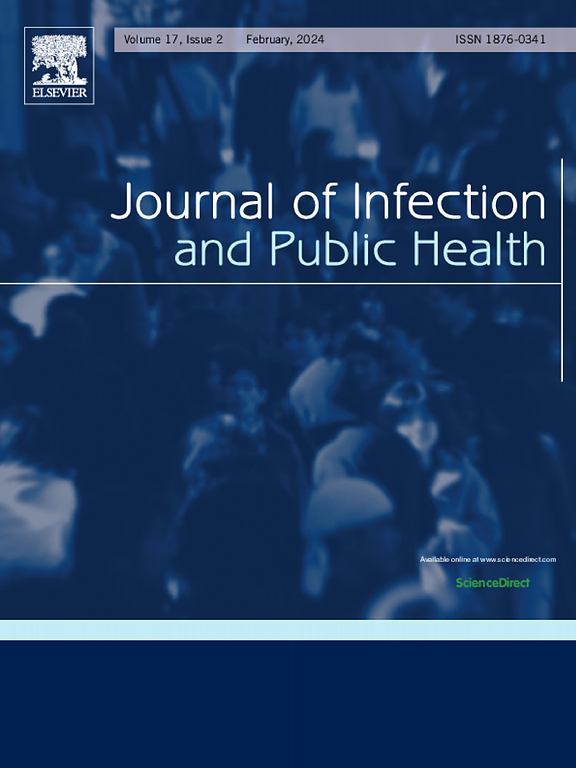Molecular epidemiology of carbapenemase-producing Enterobacteriaceae and Acinetobacter baumannii in human infections around the Red Sea
IF 4.7
3区 医学
Q1 INFECTIOUS DISEASES
引用次数: 0
Abstract
The emergence and global spread of carbapenemase-producing bacteria (CPB) is of great concern to public health. Carbapenemase enzymes, which can hydrolyse almost all β-lactams, can be readily transferred between bacterial species through recombinant plasmids, transposons, or integrons. Human infections caused by CPB have limited treatment options and are associated with high mortality rates. These enzymes are mainly identified among Enterobacteriaceae and non-fermenter bacteria such as Acinetobacter baumannii and are associated either with hospital- or community-acquired infections. Located at the crossroads of the Middle East, Europe, and Africa, the countries around the Red Sea are of interest due to their great diversity and mix of populations. This review aims to describe the epidemiology of carbapenem resistance in Enterobacteriaceae and A. baumannii around the Red Sea, with country-specific findings. In this study, we emphasise the urgent need to screen for and detect these enzymes to prevent their spread and to maintain control.
产碳青霉烯酶肠杆菌科和鲍曼不动杆菌在红海沿岸人类感染中的分子流行病学研究
碳青霉烯酶产菌(CPB)的出现和全球传播已成为公众关注的重大问题。碳青霉烯酶可以水解几乎所有的β-内酰胺,可以很容易地通过重组质粒、转座子或整合子在细菌物种之间转移。由CPB引起的人类感染的治疗选择有限,并且与高死亡率有关。这些酶主要存在于肠杆菌科和鲍曼不动杆菌等非发酵细菌中,并与医院或社区获得性感染有关。位于中东、欧洲和非洲的十字路口,红海周围的国家因其巨大的多样性和人口混合而令人感兴趣。本综述旨在描述红海周围肠杆菌科和鲍曼不动杆菌对碳青霉烯类耐药的流行病学,以及各国的具体发现。在这项研究中,我们强调迫切需要筛选和检测这些酶,以防止它们的传播和保持控制。
本文章由计算机程序翻译,如有差异,请以英文原文为准。
求助全文
约1分钟内获得全文
求助全文
来源期刊

Journal of Infection and Public Health
PUBLIC, ENVIRONMENTAL & OCCUPATIONAL HEALTH -INFECTIOUS DISEASES
CiteScore
13.10
自引率
1.50%
发文量
203
审稿时长
96 days
期刊介绍:
The Journal of Infection and Public Health, first official journal of the Saudi Arabian Ministry of National Guard Health Affairs, King Saud Bin Abdulaziz University for Health Sciences and the Saudi Association for Public Health, aims to be the foremost scientific, peer-reviewed journal encompassing infection prevention and control, microbiology, infectious diseases, public health and the application of healthcare epidemiology to the evaluation of health outcomes. The point of view of the journal is that infection and public health are closely intertwined and that advances in one area will have positive consequences on the other.
The journal will be useful to all health professionals who are partners in the management of patients with communicable diseases, keeping them up to date. The journal is proud to have an international and diverse editorial board that will assist and facilitate the publication of articles that reflect a global view on infection control and public health, as well as emphasizing our focus on supporting the needs of public health practitioners.
It is our aim to improve healthcare by reducing risk of infection and related adverse outcomes by critical review, selection, and dissemination of new and relevant information in the field of infection control, public health and infectious diseases in all healthcare settings and the community.
 求助内容:
求助内容: 应助结果提醒方式:
应助结果提醒方式:


